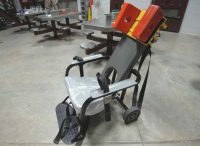Re: Conscientious Objection
Abstract
Conscientious Objection is unacceptable because it attacks the character and competence of objecting physicians, and it nullifies their freedom of conscience by compelling them to arrange for patients to obtain services to which they object.
Council has been given no evidence that anyone in Saskatchewan has ever been unable to access medical services or that the health of anyone in Saskatchewan has ever been adversely affected because a physician has declined to provide or refer for a procedure for reasons of conscience. In the absence of such evidence, the limits proposed in Conscientious Objection are neither reasonable nor demonstrably justified.
Conscientious Objection is not justified by the principles included in the policy because there is no necessary connection between the principles and a policy requiring physicians to do what they believe to be wrong. The principles can be applied to force physicians to facilitate morally contested procedures only if they are ideologically interpreted in order to impose one world view at the expense of others. The Supreme Court of Canada has unanimously affirmed that such an approach is unacceptable.
It is unrealistic to believe that the approach taken in Conscientious Objection will not be taken with respect to physician administered euthanasia and physician assisted suicide. The disclaimer to the contrary is ill-advised and misleading. A policy on Conscientious Objection should be sufficiently flexible to apply to direct or indirect participation in killing patients or helping them commit suicide. If Council is uncertain how this can be done, it should postpone policy development concerning Conscientious Objection until after the Carter decision comes into force in 2016.
Alternatively, if the College believes that some kind of guidance should be provided with respect to this contentious issue, the Project offers an alternative that protects physician freedom of conscience and religion but does not obstruct patient access to services, including euthanasia and assisted suicide.
Contents
II. Overview of this submission
III. Limitation of fundamental freedoms
IV. “Purpose” and “Principles”
V. Scope of Conscientious Objection
5.1 Taking on new patients (Comment)
5.2 Providing information to patients
5.3 Exercise of freedom of conscience and religion
5.4 Necessary treatments to prevent harm to patients
Appendix “A” – Conscientious Objection– “Purpose” and “Principles”: Comment and critique
A2. “The fiduciary relationship between a physician and a patient.”
A4. “A patient’s right to continuity of care.”
“Patients should not be disadvantaged or left without appropriate care due to the personal beliefs of their physicians.”
“Physicians have an obligation not to abandon their patients.”
A5. “A patient’s right to information about their care.”
“Physicians have an obligation to provide full and balanced health information, referrals and health services to their patients in a non-discriminatory fashion.”
A6. “Physicians should not intentionally or unintentionally create barriers to patient care.”
“Physicians have an obligation not to interfere with or obstruct a patient’s right to access legally permissible and publicly-funded health services.”
A11. “Physicians’ freedom of conscience should be respected.”
B2. Disclaimer inconsistent with opinion of the CMPA
B3. Disclaimer inconsistent with policy origin, previous statements
B4. Disclaimer inconsistent with links between abortion and euthanasia
B5. Principles support coercion of physicians to facilitate euthanasia
B5.3 “The fiduciary relationship between a physician and a patient.”
B5.5 “A patient’s right to continuity of care.”
“Patients should not be disadvantaged or left without appropriate care due to the personal beliefs of their physicians.”
“Physicians have an obligation not to abandon their patients.”
B5.6 “Physicians should not intentionally or unintentionally create barriers to patient care.”
“Physicians have an obligation not to interfere with or obstruct a patient’s right to access legally permissible and publicly funded health services.”
“Physicians’ exercise of freedom of conscience to limit the health services that they provide should not impede, either directly or indirectly, access to legally permissible and publicly-funded health services.”
B6. Unsatisfactory reasons offered to support the disclaimer
Appendix “C” – Conscientious Objection – 5. Physician Obligations
Comment and Critque
C1. 5. Obligations (Project alternative)
5.2 Providing information to patients
5.3 Exercise of freedom of conscience and religion
5.4 Necessary treatments to prevent harm to patients
C2. Conscientious Objection and Project alternative compared
Table A. Taking on new patients
Table B. Providing information to patients
Table C. Exercise of freedom of conscience and religion
Table D. Necessary treatments to prevent harm to patients
C3. Commentary corresponding to the tables in C2
Table A 5.1 Taking on new patients
Table B 5.2 Providing information to patients
Table C 5.3 Exercise of freedom of conscience and religion
Table D 5.4 Necessary treatments to prevent harm to patients.
